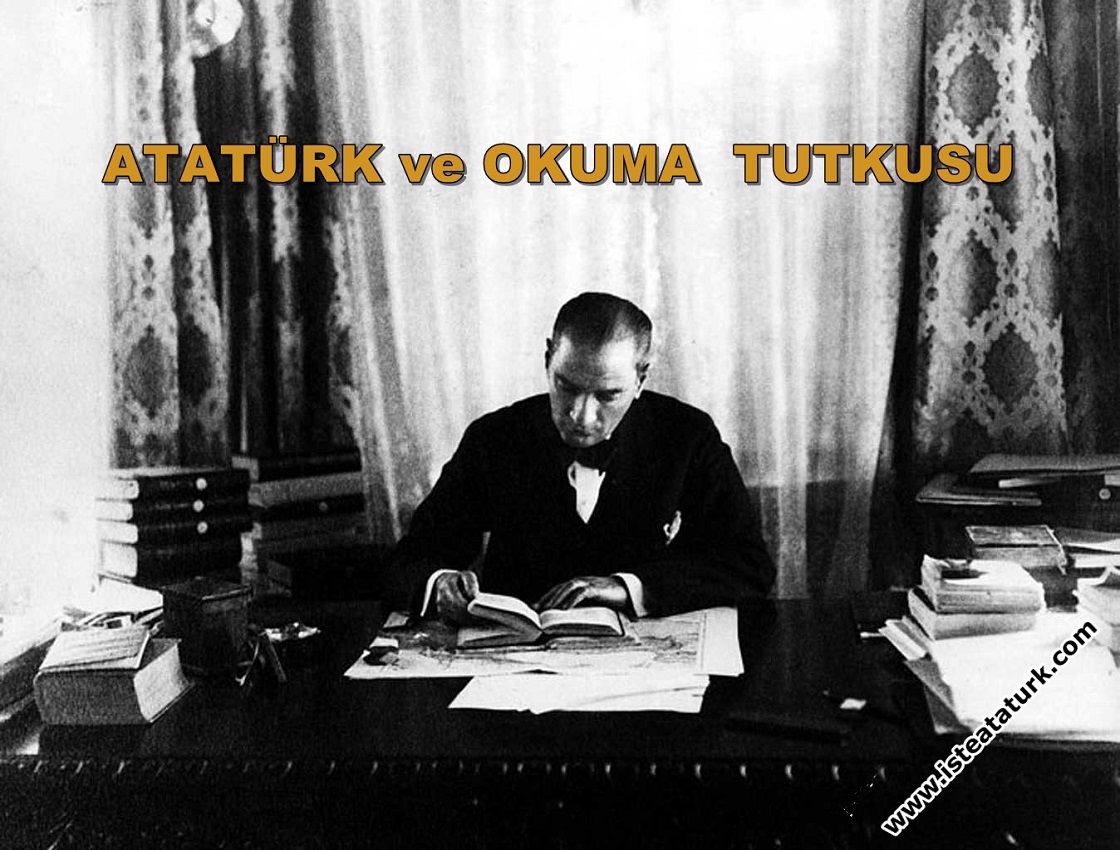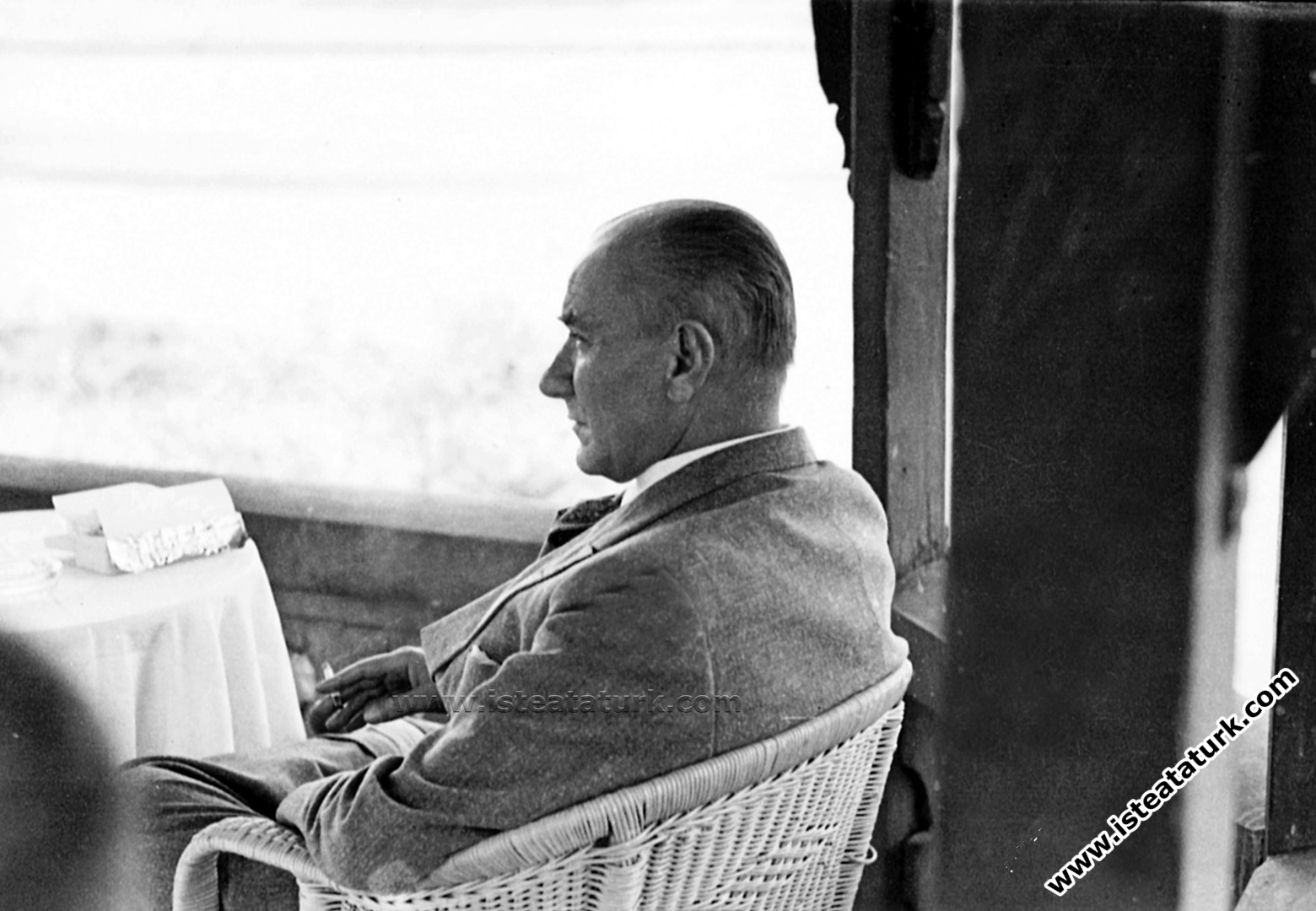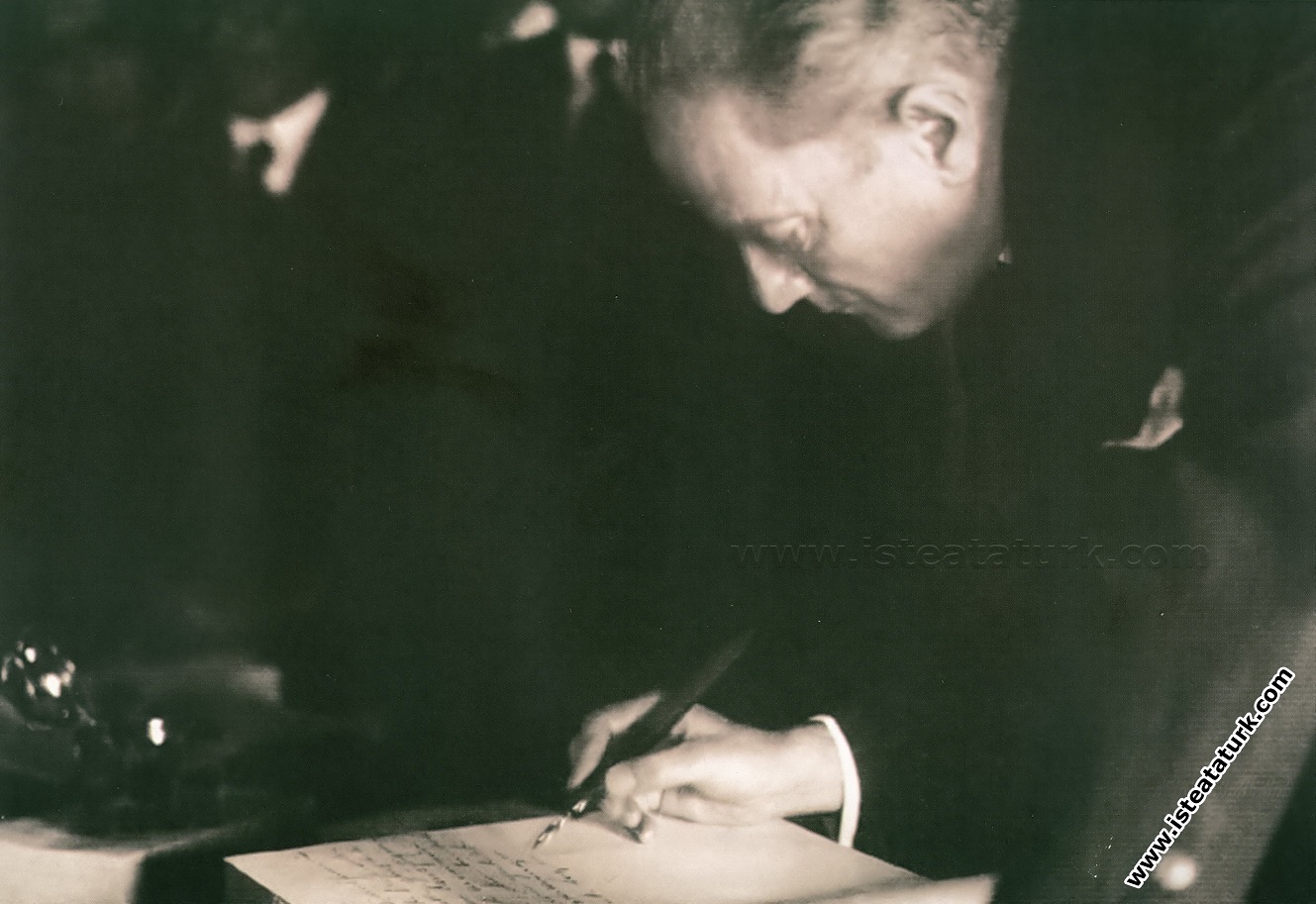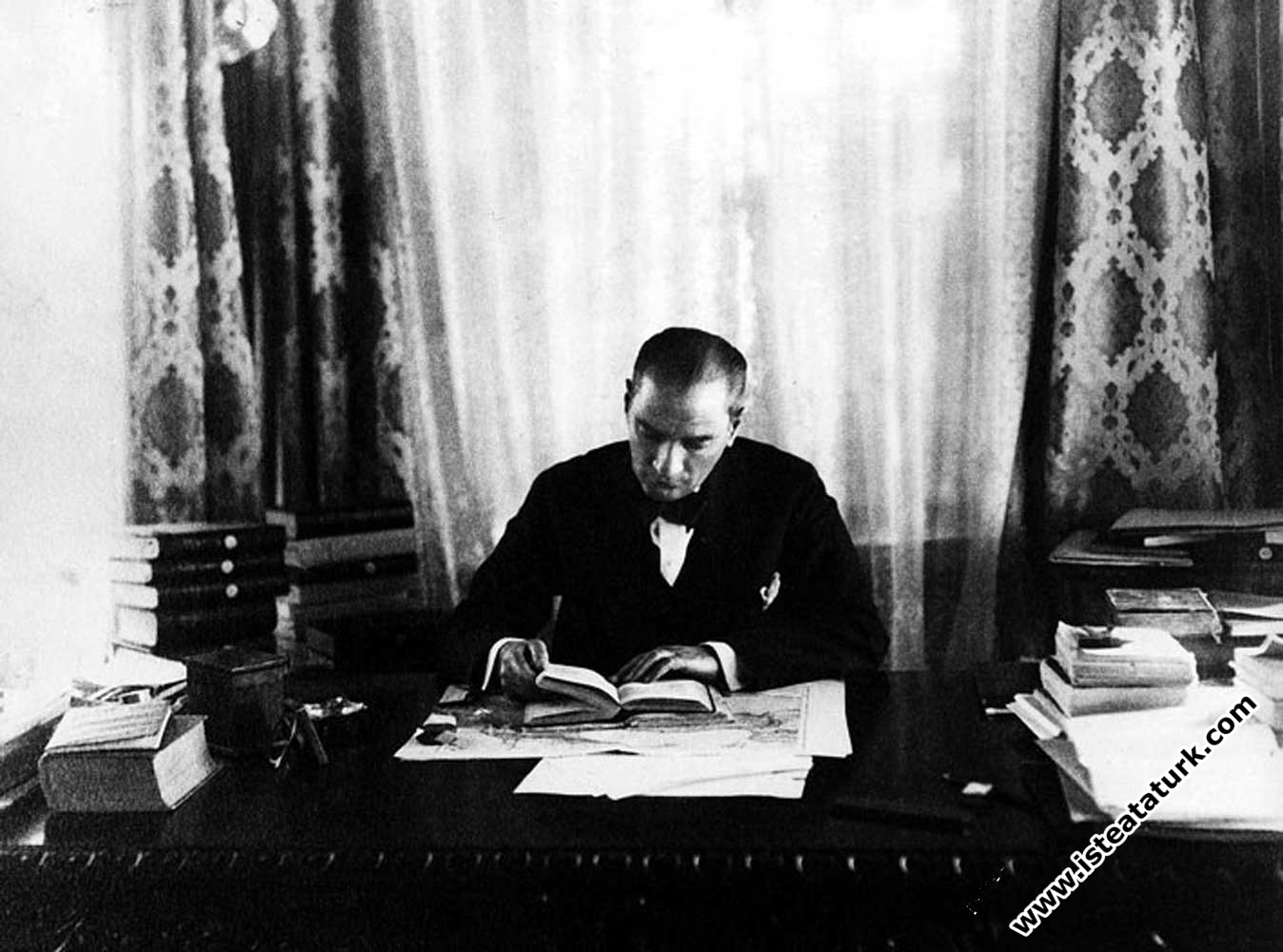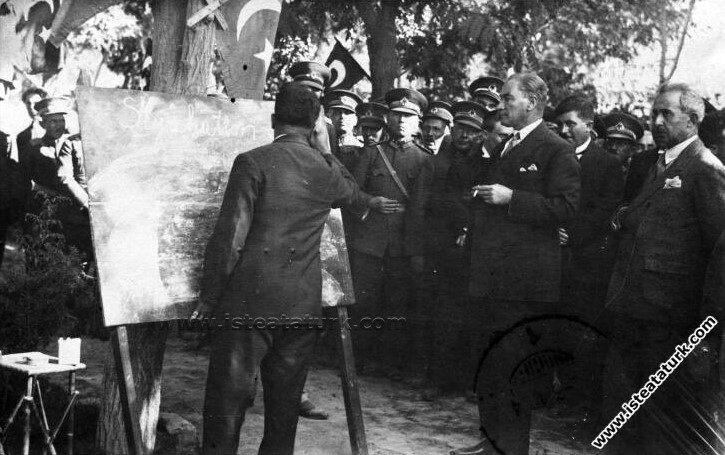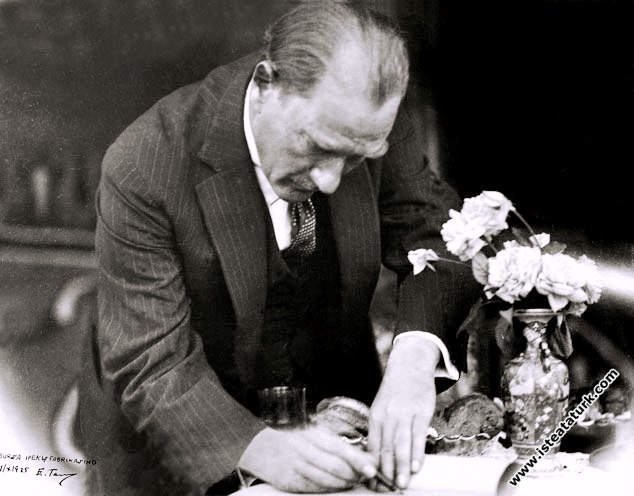
Atatürk's Wisdom and Literary Aspect
Character Size
Atatürk's Wisdom and Literary Aspect
ATATÜRK'S WISDOM AND LITERATURE
When we look at many great statesmen and leaders in history, we see that they have a wise-literary side that played an important role in their success. Ataturk is one of them.
I wonder if the only feature that makes Gazi Mustafa Kemal different from other famous Ottoman officers of his time and finally makes him Atatürk is the formation of a more successful commander and statesman than them. Writer and writer Demirtaş Ceyhun, as a master writer, reveals that this is not the case in his essay titled "I Want My Literature Back".
Considering Mustafa Kemal's historical achievements as a commander in Çanakkale, Sakarya and Dumlupınar, as well as his political life and achievements after 19 May 1919, it is clear that Atatürk's wise personality is at least as important as his command, or even more so. is seen. After the Sivas and Erzurum congresses, the Ottoman Parliament-Deputy, which could barely convene in January 1920 and was dissolved by the British two months later, on March 16, 1920, fled in a short time like thirty-eight days, and this time the 'Grand National Assembly' in Ankara. re-opening it with a name that has no special meaning and does not recognize it, especially with these deputies, almost all of whom are pro-sharia and caliphate, and establish a secular republic by winning the war,
In short, the main feature that distinguishes Mustafa Kemal from the famous Ottoman pashas of his age is undoubtedly this wise identity, which makes him one of the few real intellectuals our society has raised, and that he is a man of thought that cannot be compared with them.
As it is known, throughout history, the wise and literary identity of the person, that is, the production and accumulation of knowledge that provides the ideological evolution of humanity, has been formed primarily with poetry, folk songs, plays, myths, tales, stories, humor, in short, literature. Socrates, Platos, Aristotle, who constitute the ancient Greek thought, are undoubtedly the works of the poems, plays and stories of Homer, Aisopos, Sophocles, Aristophanes and Pindar. Great poets such as Lucretius, Catullus, Virgil, Horatius, and Ovid lie on the basis of Roman thought. The Renaissance began with Dante and Boccaccio. Contemporary French thought of Villons, Ronsards, Montaignes, Molières, Corneilles, Racines; Contemporary English thought, too, is also, no doubt, of the Spencers, Bacons, John Lylys, Swifts,
For this reason, Mustafa Kemal must have gained this intellectual and wise personality, which distinguishes himself from his fellow soldiers, from his interest in literature and his fondness for reading, which started when he was still in middle school and high school.
As a matter of fact, in an interview published in Vakit newspaper on January 10, 1922, he said, “The late Ömer Naci was expelled from Bursa High School and came to our class. He was a poet even then. He asked me to read a book. I showed all my books. Didn't like any of them. I was overwhelmed when a friend of mine didn't like any of my books. That's when I learned that there is such a thing as poetry and literature. I'm starting to get interested. Poetry seemed tempting to me, but a newcomer called the epigraph teacher banned me from dealing with poetry, saying, 'This kind of occupation will take you away from military service'. I did not forget the prohibition of my high school teacher about writing poetry, but I always had the enthusiasm to sing and write well," he said, saying that he was interested in poetry and literature while he was still a student at the monastery military high school,
According to what his classmate Asım Gündüz wrote in his memoirs, he “collected Namık Kemal's poems in a notebook” during the war and memorized many of these poems. While he was a student at the Military Academy, he said, “Where are our poets when they were writing poems for the freedom, unity and solidarity of the country, the national poets of Bulgaria, Greece and Serbia, which were our provinces of yesterday?” he lamented.
In a letter he sent to Salih Bozok from Sofia, he wrote that he translated poems from a French poet. In other words, his interest in literature continued during his military service.
Agop Dilaçar also wrote in one of his articles, “He knew French very well. He read French novels and poems in French from the originals. He mentioned these novels in the letters he wrote to Madame Corinne, the widow of one of his military friends. He knew Turkish literature from the Divan period to the new trends, and he especially loved Tevfik Fikret.” According to the information given in Melda Özverim's book “Mustafa Kemal and Corinne Lütfü”, she “participated regularly in music and poetry meetings held on Saturdays in Corinne's hall as long as she was in Istanbul” and continued to read poetry throughout her life.
Ruşen Eşref Ünaydın also looks at the books in the 'library in his room' and writes that “Mustafa Kemal Pasha came to the conclusion that even the stagnant moments of the war filled the gaps with literature”. As a matter of fact, those who read Turgut Özakman's book "Those Crazy Turks" also found that Atatürk found time to read books even on those busy days when the preparations for the War of Independence were going on. they will see it.
One of the common admiration of different authors who wrote about Atatürk's life is his friendship towards books. Journalist Ruşen Eşref Ünaydın, who went to the front to meet with Mustafa Kemal during one of the most violent periods of the Çanakkale War, describes Atatürk's room as follows: “Balzac's Colonel Chabert, Manpassant's Boule de Suif next to a Circassian wedge on his office. i, Lavendan's Servir was standing…” Atatürk read most of the works of French authors from the originals…
According to the determinations made by the Anıtkabir Association, the number of known books Atatürk read is 3997. 1741 of these books are in Çankaya Mansion, 2151 in Anıtkabir, 102 in Istanbul University Library and three in Samsun Gazi Provincial Public Library. The association did a good job, combining the paragraphs that Atatürk underlined and marked in the books he read, and the notes that Ata wrote in his own handwriting, and published them in a 500-page, 24-volume series under the title "Books Atatürk Read".
Every person must be dizzy while reading the "Atatürk Revolution Chronology" carefully prepared by Sami Özderdim. From Damascus to Benghazi, from Çanakkale to Afyonkarahisar, a life kneaded with wars and the War of Independence.
Say what; If we say that “His fondness for reading and high ideals are among the factors that make Gazi Mustafa Kemal Atatürk such a great thinker, unique statesman and supreme wise person, would we not be expressing a truth? The more you get to know Atatürk, the better understand that it is not easy to be a great man.
Even the chapters of the books he read, which he only underlined, hold 12 thousand pages. We see that when he completed his education at the age of 24, he collected all his textbooks and turned them into two-volume books, and used them as needed in the following years. There was not one of the students who said that school is over, the lesson is over!
The situation in which our nation, which has raised such a genius as Atatürk, is plunged into today is heartbreaking. Unfortunately, the available statistics show that the public does not read, and also reveals that the intelligentsia do not read enough. Their ignorance emerges from their speech and writing, from their analysis of events. The people who do not read are brought up with the televole culture, thus breaking away from science and contemporary developments. Maybe that's what you want! It is easier to motivate a people who have been deprived of reality and who are impoverished, and to direct them as desired with religious suggestions. It is necessary to ask those who ask why we cannot make a great man in recent years, "What else do you expect from a society that does not read?"
The saddest part is that today's generation, who grew up in such a reading-impaired society, poses a greater danger to the future. Because they are our trustees to whom we will deliver our future. We have to give them the habit of reading and teach Atatürk correctly. In fact, we all still have so much to learn from Atatürk!
Anyone who reads Atatürk's great work, Discourse, cannot help but appreciate what a great master writer, wise man of letters, and a unique thinker he is. Atatürk's path is full of books… How happy is the one who says I am reading a book! To those who walk in His path...
Source: Prof. Dr. Süleyman BOZDEMİR, Çukurova University. Department of Physics, (2006, November 10 Gift)
